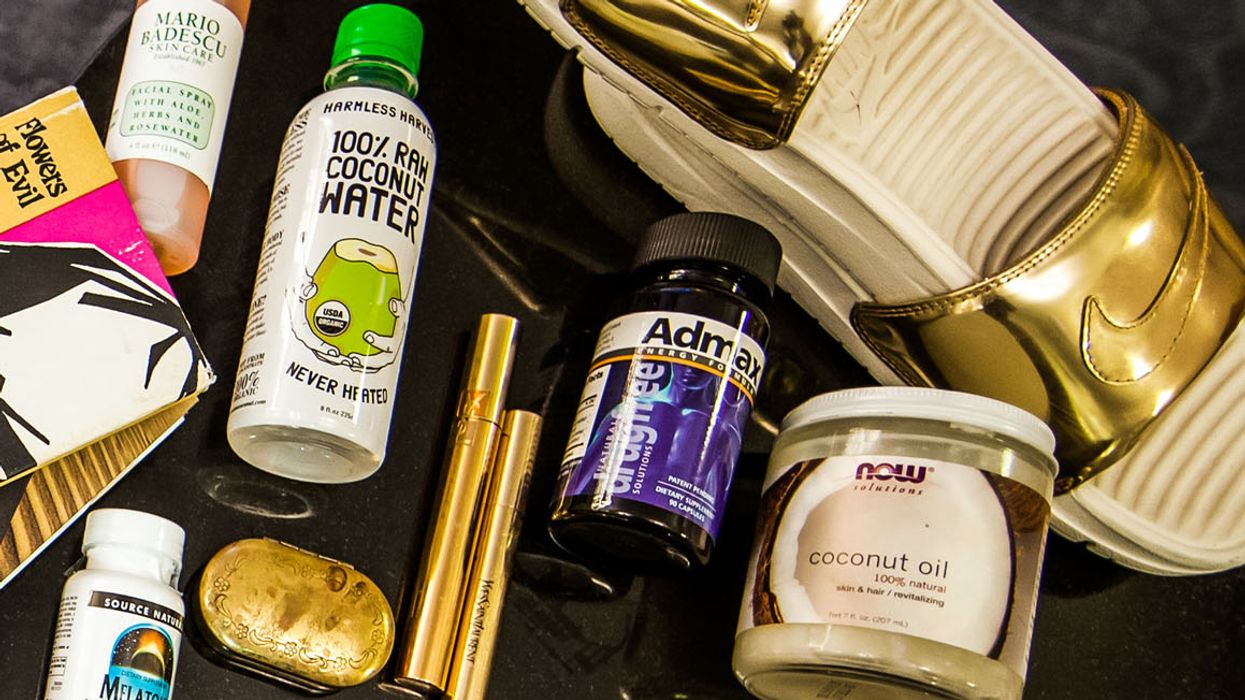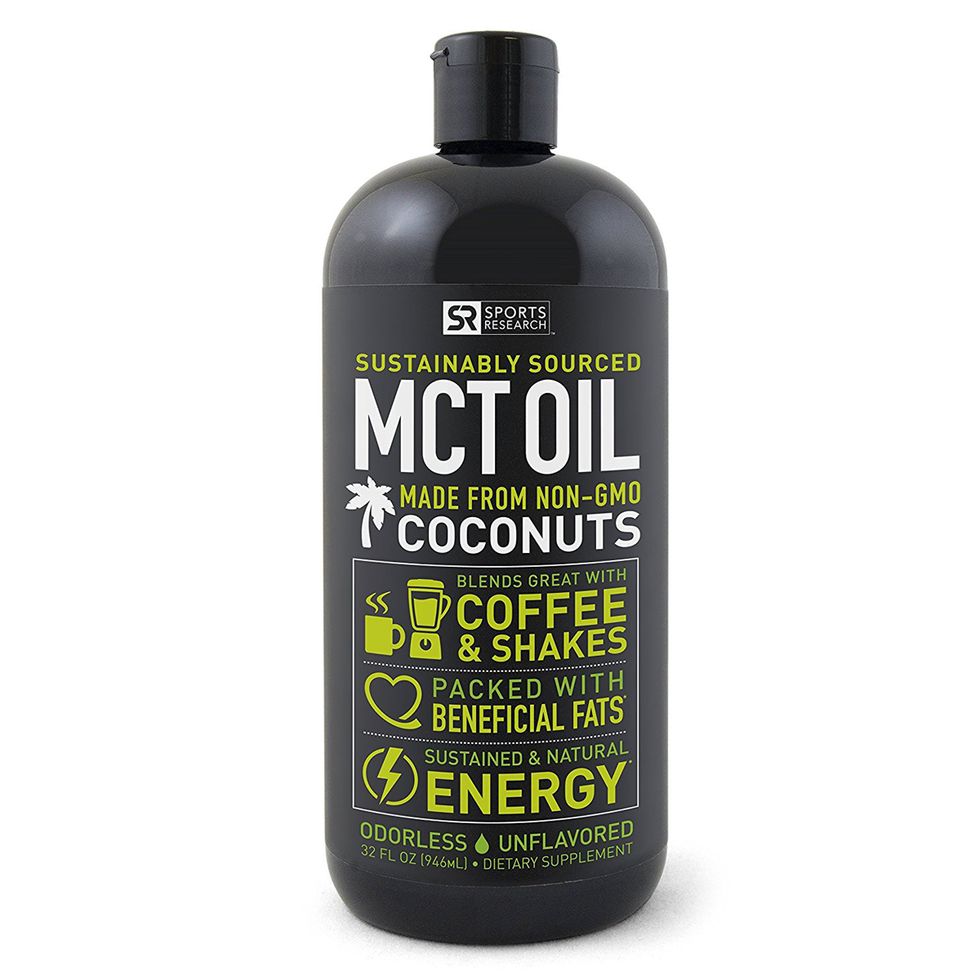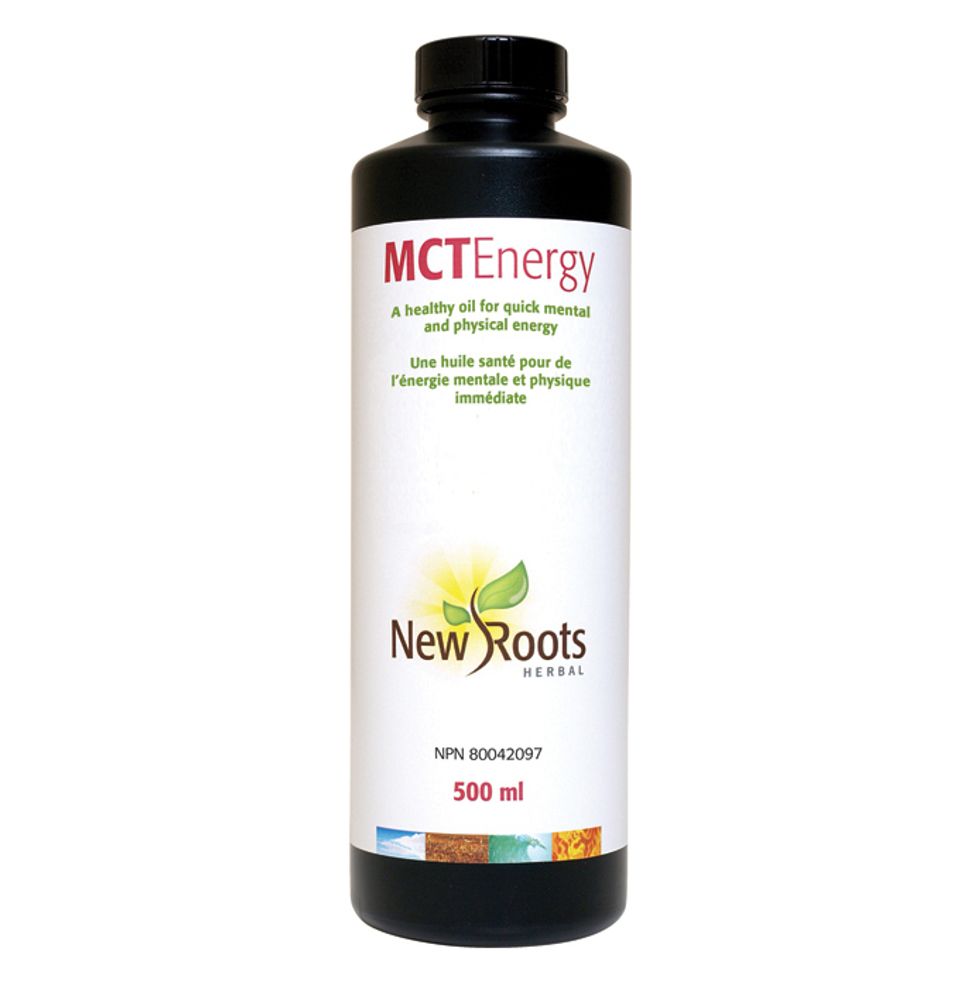Apparently Coconut Oil Isn’t Healthy, Is MCT Oil Any Better?
Two experts weigh in.

Last week, the American Heart Association threw us the ultimate coconut-sized curveball. According to their studies, coconut oil—the one you’ve been putting in practically every meal since ~everyone~ told you to—is just as bad for you as beef fat. What?! But, typical of the ever-evolving world of wellness, opposing claims say it’s not all bad, just not *as* healthy as we’ve been told. But as coconut oil loses its reign in the health food world, something called MCT oil—a derivative of coconut oil that may be the secret to its health halo—is inching its way to the top and is at the heart of the mega health trend, the Bulletproof Diet. Before we lay claim to another fad, we’re consulting two experts—cardiologist Dr. George Welch of Manhattan Cardiology, who is concerned by the premature nature of the studies, and nutritionist Cynthia Pasquella, who is an MCT oil proponent.
First of All, What Is MCT Oil?
MCT oil is not the same consistency as coconut oil, but more of a light essence that’s bottled up in an opaque container and perched in the pantries of practically every health-obsessed Cov alum we’ve snooped on. MCT oil contains special forms of saturated fatty acid found in coconut oil and other tropical oils, which, explains Pasquella, “bypass the metabolic burden of processing in the liver so they quickly become energy in your brain and muscles.” Those who are big proponents of MCT oil say it makes them feel more energized, think more clearly, and increase their metabolism. Basically: “The assumption is that if we took the MCTs out of coconut oil, and made its own separate oil, it would be healthier than coconut oil,” Welch explains, though he doesn’t agree.
The controversy, as Welch points out, is when MCT oil is extracted, it loses something called lauric acid, one of the healthiest components of coconut oil, as it has anti-bacterial and hormone-balancing properties. Pasquella, on the other hand, is quick to explain the major benefit of what MCT oil does have: caproic acid (C6), which “converts quickly to ketones,” organic compounds created when your body burns fat; caprylic acid (C8), which has “antimicrobial properties (way more potent than lauric acid) to help you maintain a healthy gut, and is the fastest to metabolize in the brain”; and capric acid (C10) “that turns into adenosine triphosphate (ATP), the cellular fuel you use quickly without the liver.” No wonder people add it to their morning smoothie or stir into a cup of coffee.
What About *That* American Heart Association Claim?
According to Dr. Welch, the whole brouhaha around coconut oil “is that it’s virtually 100% saturated fat, containing 82% of saturated fat compared to butter, containing 63% of saturated fat,” which, when consumed in large amounts, “can lead to heart disease,” he explains. But Pasquella wants us to understand that “the American Heart Association is only focusing on cholesterol and ignoring all the other benefits of this amazing substance. We know the key to prevention of disease starts with a low-inflammation diet, and coconut oil is a low-inflammatory substance. The AHA is now recommending to replace coconut oil with vegetable oil, [which is] a very inflammatory oil,” she warns. When it comes to MCT oil, saturated fat content isn’t an issue, “but the problem with it is that it’s controversial if it has any true health benefits,” cautions Dr. Welch, as it hasn’t been studied thoroughly.
The Benefits
As for what you’ll notice in your body? “Studies show that MCTs support an increase in thermogenesis, which is what happens when the body generates heat and burns calories from our fat stores for energy,” Pasquella says about the claims that MCT aids in weight loss. “My clients and I love MCT oil because it gives an instant energy boost, improves digestion, reduces stored body fat, can improve your mood and help to balance hormone levels. As with anything, results vary depending on other dietary factors and individual body types,” she discloses. Yet, Dr. Welch is a bit more reserved in his beliefs, and according to him, while there have been “claims that MCT helps people lose weight, reduces stored body fat and has beneficial cognitive effects, none of these have been well proven.”
Are There Risks?
Like with any new supplement, there are some very important precautions to take. While MCTs are derived from a natural source, Dr. Welch warns that they “are made in a factory, so you are never sure of contamination and exactly how they are being processed.” And Pasquella adds, “Ensuring the source of your MCT oil is essential to lowering the risk of these side effects.” But Pasquella continues that you should “be sure to veer away from so-called ‘MCT oil’ that is diluted with lauric acid, a useful but cheap and hugely abundant part of coconut oil that is marketed as an MCT oil,” in order to get the best results. “You can look out for these by ensuring C8 and C10 are in your MCT oil,” she suggests. Dr. Welch provides an added discretion: “Eating a healthy balanced diet is better than consuming a manufactured supplement that you’re not sure what processes it went through while being manufactured.”
Final Say
All of this is to say that if you’re concerned about the saturated fats in coconut oil, and would rather forgo more caffeine or energy bars (the latter of which are likely chock-full of chemicals and synthetics), MCT oil is probably worth looking into. But make sure to read the back label for a high-quality and pure variety. Both Dr. Welch and Pasquella agree that an easy rule of thumb is that moderation with anything is key.
[Editor’s Note: As ever, we are not doctors or medical know-it-alls. And everybody is different, so make sure to check with a doctor before trying anything new.]


